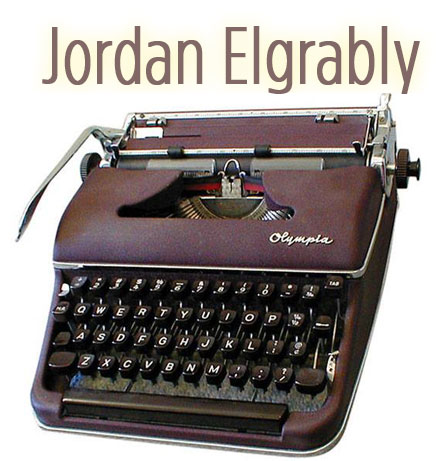Poet/critic Julia Stein, in her 2009 review of Wrestling With Zion edited by Tony Kushner and Alisa Solomon, expressed her wish that Arab Jewish progressives like Sami Shalom Chetrit and Jordan Elgrably had been included among the anthology's contributors. "Elgrably has worked with Arabs, Armenians, and Persians et al to create a Levantine Center that promotes many Middle Eastern cultures. Such centers are crucial to helping the American Jewish community redefine itself as well as to help make peace in the Middle East."
Center Shines Its Art Through Clouds of War; Directors hope performances will help Americans better understand viewpoints of the Middle East
Mary Rourke, writing in the Los Angeles Times on Sept. 22, 2002,
Los Angeles; Using the Arts to Celebrate L.A.'s Cultures; Diversity: Wide-ranging annual open house draws an estimated 75,000 to 150 sites across the county
Writing in the Los Angeles Times on Oct. 7, 2001, reporters Stephanie Chavez and Jose Cardenas, noted, "In one poignant moment at the John Anson Ford Theatre in Hollywood, Jordan Elgrably, who helped establish a new Middle Eastern cultural center in Los Angeles, stood before about 200 people to introduce a Persian dance troupe and a Sufi music ensemble. 'When you think of the Middle East today, you think of . . .' he paused, then continued: 'You think of terrorists, the Taliban maybe, people in bunkers.' The audience fell silent. 'But today,' he said, 'we are here to think of the Middle East as a cradle of cultures. These performers show the wealth of Mideast culture in Southern California.'"
Los Angeles; Jews of Diverse Views Rally for Israeli Solidarity; Demonstration: Groups from a cross-section of the community turn out, 5,000 strong, in effort to regain the public relations offensive.
Writing in the Los Angeles Times on July 23, 2001, Larry B. Stammer interviewed some counter demonstrators: "We want the Jewish community to see another message — that Arabs and Jews are not enemies and that we have been misled by the peace process," said one of the counter demonstrators, Jordan Elgrably, of Open Tent, a U.S.-based interfaith coalition that advocates peace in the Middle East.
Stopped Talks: Intifada II has put a halt to local efforts of Arab-Jewish dialogue
Writing in the Jewish Journal on June 29, 2001, Tom Tugend described the many Arab/Muslim and Jewish dialogue efforts occurring in greater Los Angeles. "A recent effort off the beaten track is the Open Tent Middle East Coalition, which sponsors joint Arab-Jewish cultural events and discussions. It was founded by Jordan Elgrably, a Sephardi community activist who faults the Jewish community for lack of self-criticism and failure to acknowledge Arab grievances. Elgrably, sounding a not-uncommon note of frustration, likens the job of dialogue facilitator to that of King Sisyphus of Greek mythology, who was condemned to forever roll a heavy stone uphill, only to see it tumble down again as soon as it reached the peak.
Requiem for a Dream? Will organizations promoting Jewish-Arab coexistence buckle under Mideast pressure?
Writing in the Jewish Journal on May 18, 2001, reporter Michael Aushenker noted: "There’s definitely been a breakdown of communication" between Arabs and Jews, reported Jordan Elgrably, who, with Munir Shaikh, co-directs Open Tent, a local Arab-Jewish cultural coalition. For a decade now, the part-Moroccan, part-Jewish Elgrably has been on the forefront of working to remedy stilted relations between members of what he has tagged as "a dysfunctional family." In fact, Open Tent will hold its latest forum at UCLA this weekend (see information on page 46), when progressive Jewish and Palestinian speakers will engage on panels discussing issues affecting both communities.
Elgrably believes that the need for forums such as Open Tent and the recent JUNITY conference in Chicago is more crucial than ever. As he sees it, the deterioration of ties between Arabs and Jews will continue as long as both sides avoid doing the real social interaction required — especially mainstream American Jews, who, he said, continue to view Israel as an underdog rather than an oppressor. From his experience, most Palestinians have made peace with the idea of a Jewish state. "They’re not thinking 'we’re going to destroy Israel one day,'" Elgrably said. "They just want to have their homeland and move on."

